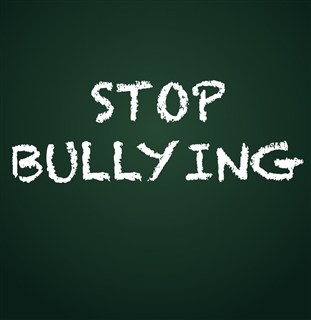A parent’s natural instinct is to protect his or her child from harm. That’s why the issue of bullying is top of mind for most parents of school-aged children. It’s first important to understand what bullying is so that the signs may be recognized and addressed.
Bullying behavior can be distinguished from other inappropriate behavior by remembering the acronym “RIP,” which stands for:
-
Repeated
-
Imbalance of Power
-
Purposeful
While “repeated” and “purposeful” are self-explanatory, the “imbalance of power” criterion can sometimes be confusing. Here are some examples of power imbalances between children: physical (size/strength), social standing/popularity, and being outnumbered (two or more children picking on or excluding another child).
Bullying can take several forms:
-
Physical (hitting, punching, beating)
-
Verbal (teasing, name-calling, threats)
-
Emotional (intimidation using gestures, social exclusion, threats)
-
Sexual
-
Racial
-
Cyberbullying (online harassment, hate messages, threats, impersonation, and other digital abuse)
-
Hazing
Signs that may point to a bullying problem:
-
Unexplainable injuries;
-
Lost or destroyed clothing, books, electronics, or jewelry;
-
Frequent headaches or stomach aches; feeling sick or faking illness;
-
Changes in eating habits, like suddenly skipping meals or binge eating. Kids may come home; from school hungry because they did not eat lunch;
-
Difficulty sleeping or frequent nightmares;
-
Declining grades, loss of interest in schoolwork, or not wanting to go to school;
-
Sudden loss of friends or avoidance of social situations;
-
Feelings of helplessness or decreased self-esteem;
-
Self-destructive behaviors such as running away from home, harming themselves, or talking about suicide.
Sadly, adults are notified in less than half (40%) of bullying incidents, so it is important to recognize the signs and communicate with your child in a calm, open manner. Kids don’t ask for help for many reasons, including: fear of being seen as weak or a tattletale, fear of retaliation from the bully, embarrassment, fear of punishment for being weak, feeling like no one cares/would understand, fear of rejection by peers, and belief that adults can’t or won’t help them.
Most parents (if their child tells them about a problem) tell their children to 1) ignore it; and/or 2) “stand up” for themselves. These strategies are good life skills for children to have, but they are typically more effective in situations where there is not an imbalance of power or the behavior is a minor, one-time incident. Our job as adults is to help children when they need us, and in a true bullying situation, they do.
The effects of bullying can be very severe, long-term, and life-altering. Please reach out to your child’s teacher, school counselor, and dean immediately if you have concerns about a potential bullying situation.
Sources:



